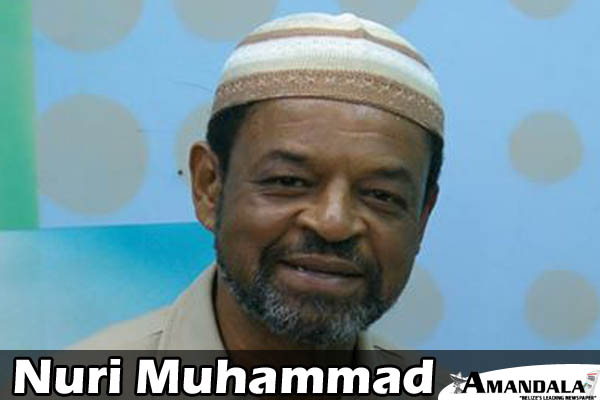Say: “We believe in Allah and the revelation given to us, and to Abraham, Ismail, Isaac, Jacob and the tribes; and that given to Moses and Jesus and all the other prophets by their Lord. We make no difference between any of them, and to Allah we have surrendered ourselves.”
(Holy Qur’an)
That you should love the Lord your God with all your heart and with all your soul and with all your mind and with all your strength, and that you should love your neighbor as you love yourself.
(Holy Bible)
Muslims will begin the one-month fast of Ramadan this year on Wednesday, May 16, 2018. The twenty-nine or thirty days of fasting is one of the central tenets of the religion of Islam, which is adhered to by over two billion people worldwide. The end of this years’ fast is expected to be on June 14 or 15, 2018.
Ramadan is the ninth of 12 lunar months observed in Islam. It is a time of fasting and worship prescribed by Almighty God in the final revelation to Prophet Muhammad, (peace be upon him), known as the Holy Qur’an. In it God says: “O you who believe! Fasting is prescribed for you as it was prescribed for those before you that you may attain God-consciousness.”
The fast involves a physical, spiritual and social aspect. Physically the faster arises early in the morning before the sunrise, and partakes of a light meal known as ‘suhur,’ followed by, the Morning Prayer. For the rest of the day until sunset he/she does not partake of any food or drink or sexual contact with his or her spouse. After sunset the faster breaks the fast with a light meal called ‘iftaar’, followed by the Sunset Prayer. From sunset till sunrise he/she can partake in what they abstained from during the daylight hours.
There are exemptions from the required fast, for those who are sick or travelling, or of old age or a child under 12 years old. Pregnant women or nursing mothers or menstruating women are also exempt. For these exemptions there is the chance to make up the equal number of days by fasting at a later time. Those who find it hard can feed a needy person for every day he/she cannot fast. While not the primary objective there are also tremendous health benefits gained by fasting.
The spiritual aspect of the fast, however, is even more essential, since the Prophet Muhammad has said that the person who fasts but does not change his/her behavior during the Ramadan has just experienced days of hunger; therefore, the yearly prescription of the fast is to enhance this consciousness of God and to strengthen our stewardship over our behavior; without it we can justify any action regardless of how selfish, cruel, wicked, vicious, or criminal. God-consciousness can be present or absent in a person, and for some it can sometimes be strong and sometimes weak, but we can all agree that when that consciousness is strong and vibrant we behave better. Maybe this is why old people use to tell us: “let your conscience be your guide.”
The month of Ramadan is a period of spiritual renewal or realignment of the self in accord with what is pleasing to Almighty God. It is a period of intense prayer and seeking of forgiveness for sins committed knowingly and those we commit unknowingly; those committed in the light, (publicly known) and those secretly done in the dark. Fasting is a very personal thing between the faster and God because no one really knows if or when one is fasting.
There are also many social aspects tied to Ramadan that have great relevance to Belize today. For example, going without food and water for 13 hours a day drives home the meaning of hunger suffered by many who are destitute and suffer, not by choice, as the fasters do, but by the reality of hard times that have thrown them into involuntary ‘sufferation’.
Fasting is not exclusive to the Muslims; as the above quotation cites, both Christians and Jews were commanded to fast; the difference is that Muslims as a whole have continued to adhere to this commandment of God while others only followed it as an individual choice.
I could remember as a child the Lenten season in Belize was observed with fasting and penitence. While not everybody fasted, it was clear that people were observing some kind of abstinence from certain things. The spirit of atonement and forgiveness was evident, and even as a child I could sense that there was something very special going on. Today that culture has changed. Lent is no longer observed as a social obligation; in fact this generation under twenty-five years old seems to have no concept of its meaning. The spirit of Lent that we used to experience in Belize is the closest thing to the spirit of Ramadan.
So the end of Ramadan, known as the ‘Eid,’ is a reason to give thanks and praise as Muslims celebrate the personal and collective reward that comes from Allah (God) for all who have fasted in His name and for His pleasure.
Blessed Ramadan.

